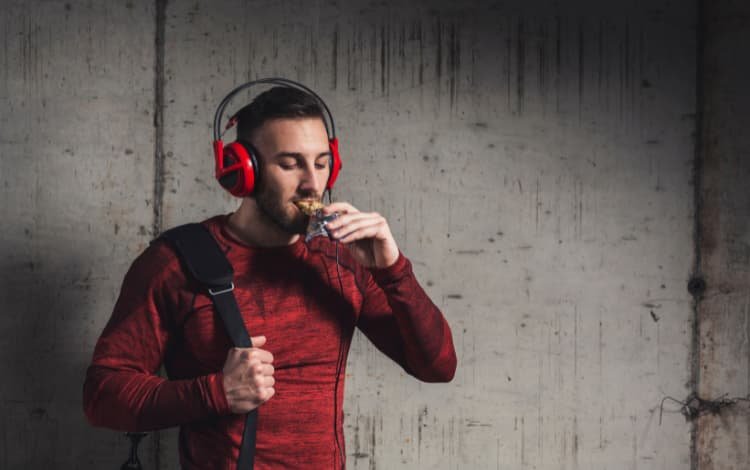“Why Am I Gay?” How to Accept Yourself Instead of Not Wanting to Be Gay
If you've searched "Why am I gay?" or "How do I not be gay?", you're not alone.
You might be a gay man who likes men but doesn't want to identify as gay.
You keep asking, "Why am I gay?" and wishing you weren't attracted to men.
You feel strongly about this, and you begin to dislike yourself.
Does that sound recognizable?
Many gay men feel the same way. It can be difficult if you can’t talk to anyone without revealing your secret.
As a gay therapist, I work with many men facing similar challenges.
I know one thing - your self-esteem can get better.
You can start accepting yourself, have supportive friends, and live a fulfilling life.
This article aims to provide understanding, support, and guidance as you navigate these feelings.
I hope it inspires you to consider not hating a normal and healthy part of your identity. I hope you'll have the courage and support to come out someday.
What Does "Being Gay" Mean?
Being gay means you naturally "feel emotional, affectionate, and sexual attraction to the same gender and have close sexual relationships."
If you identify as gay, you’ll experience sexual or romantic attraction to the same gender, regardless of age, race, or class. This is a widely accepted albeit broad definition of being gay.
You'll experience physical attraction and emotional feelings toward other men. This relationship will offer an emotional and sexual connection, making you feel complete, accepted, and loved.
Many gay guys feel awkward and scared when they start to explore their sexual identity, which is okay.
If you feel this way, talk to a trusted person to help you process your emotions and understand yourself better.
Do Gay People Choose to be Gay?
You're not alone in wondering about this; it's a topic of debate.
In short, no.
Why are you gay?
Being gay is not a choice; it's a sexual orientation and a natural part of life.
The American Psychological Association states that "sexual orientation is not a choice that can be changed at will" and that it "results from a complex interaction of environmental, cognitive, and biological factors."
Was I Born Gay?
This is a complex question many struggle with.
Modern science doesn't have a definitive answer about what determines sexual orientation.
Most experts agree that being gay isn’t a choice.
Current research suggests that genetic, hormonal, and environmental factors likely influence sexual orientation.
These factors are not choices and are beyond your control.
Regardless of when or how your sexual orientation developed, being attracted to men is a natural and valid part of who you are.
Whether you were "born gay" or your sexuality developed over time doesn't change that your feelings are real and worthy of acceptance.
Remember, this interplay between biology and environment affects everyone, not just gay individuals.
Focus less on the "why" and more on accepting and embracing yourself.
How to Know If I’m Gay? Recognize Your Feelings.
Understanding your same-sex sexual orientation often requires introspection and honesty.
Instead of focusing solely on attraction or signs of someone's sexuality, consider the broader emotional landscape of your experiences.
Ask yourself:
Have you ever been physically and emotionally attracted to other men?
Was this a persistent feeling in your life or an occasional curiosity?
The key is not just the depth and consistency of these feelings, but your gender attraction.
Your comfort level around men can be an insightful guide.
If you naturally gravitate towards men and relate to them emotionally, it could indicate being gay.
Are You Gay? Questions to Spark Insight.
Reflecting on your feelings and experiences can provide crucial insights into your sexual orientation as a gay man.
As you explore your sexuality and identity, consider these questions:
Who do you envision in your future?
Have you ever been attracted to another male?
Do you connect better with other men?
Do you enjoy watching gay characters or themes in movies or TV shows?
Do you relate more to LGBTQ+ characters than straight ones?
These questions help you understand your feelings and attractions, providing insights into your sexual orientation.
It's okay to feel unsure or not have clear-cut answers.
You're on a unique personal journey, and there's no need to hurry to figure everything out.
The goal isn't to immediately reach a conclusive label but to foster self-awareness and understanding.
Trust your instincts, honor your feelings, and give yourself space and time to explore who you are.
Common Myths About Being Gay.
Many false ideas about why people are gay exist. Let's correct a few:
It’s impossible to determine someone’s sexual orientation by appearance. People from various backgrounds identify as gay, lesbian, or bisexual and have diverse appearances.
Second, conversion therapy doesn't work and can cause harmful effects like depression, anxiety, drug use, homelessness, or suicide. Seeking a cure for homosexuality is unhelpful and dangerous.
Coming out is a personal choice, and there is no right way. Only you can decide when and if you’re comfortable asking for help or coming out if you think you’re gay.
Fourth, there’s no singular gay lifestyle. LGBT+ people lead diverse lives, just like everyone else.
Fifth, accepting yourself as gay doesn’t mean you have to live a life of pain, hardship, and loneliness.
Societal pressures to appear straight can lead to feelings of isolation and discomfort about expressing one's sexuality.
It's essential to remember that being attracted to other men is neither unnatural nor a choice; it's a fundamental part of someone's identity.
Is Being Gay Natural? Or Do I Have a Mental Disorder?
A mental health condition does NOT indicate being gay.
Straight, gay, bisexual, and lesbian identities are not mental illnesses.
After decades of studies and expertise, primary mental health and medical organizations conclude that same-sex orientations are normal human experiences despite prevalent prejudices.
Same-sex sexual and romantic partnerships are natural and common among humans.
Yes, being gay is normal!
Why Do I Have Anxiety About Being Gay?
It's common to feel uncomfortable and anxious about being gay.
As a young gay boy, I struggled with self-acceptance, fearing judgment and losing friends.
I feared my parents' reaction. It wasn't until the end of high school that I accepted being gay.
As a gay man and therapist, I've been where you are.
When I was younger, I struggled with accepting my sexuality.
I remember lying awake at night, wishing I could change who I was attracted to.
It took time, but I learned that my sexuality is a beautiful part of who I am.
My journey from self-doubt to self-acceptance drives my passion for helping others on similar paths.
Life is challenging and can become more complicated when you feel different from those around you.
This is why many gay men struggle with their sexual orientation.
You might feel "abnormal," different from others, making you feel like an outsider.
But remember, everyone is different, and there's nothing shameful about being gay.
How Do I Stop Hating Myself for Being Attracted to Men?
Many reasons might explain your sexual orientation, but the cause is less important than how you see yourself now and plan to live in the future.
Here are some suggestions if you're struggling with self-acceptance:
Be around supportive people.
Talk to friends or a gay counselor.
Consider reading books by people who have experienced what you’re going through.
Focus on the present, not the future.
The most important thing is to make peace with who you are and find happiness in your life.
Suppressing your emotions can be mentally and physically draining. This can lead to negative outcomes like depression, anxiety, low self-esteem, toxic relationships, sex addiction, and internalized homophobia.
Loving and Accepting Yourself as a Gay Person.
Many LGBT+ community members struggle with accepting their sexual orientation.
Here are some tips:
Acknowledge your feelings. Your emotions are crucial for understanding your sexual identity.
Find support. Talking to other LGBT+ community members can offer comfort and understanding.
Educate yourself. Learning about LGBT+ history, culture, and politics can empower you and boost your self-confidence.
Respect yourself. Practice self-respect and self-love.
Celebrate your uniqueness. Embrace your unique qualities. Being gay is just one part of you.
Talk to a professional. A gay therapist or counselor can help you explore your feelings in a safe, supportive environment.
Try this simple exercise:
Each day, look in the mirror and say one positive thing about yourself unrelated to your sexuality.
This reinforces that your worth isn't defined by who you're attracted to.
Understanding your sexual orientation involves allowing yourself to be vulnerable.
Accepting your feelings can be daunting, but don't let this prevent you from opening up to people.
The Coming Out Journey
Coming out is a personal decision and process, but it's important in many gay individuals' lives.
It's okay if you're not ready to come out yet. There's no rush, and your safety and comfort come first.
When you’re ready, remember:
Start with supportive people you trust.
Prepare for various reactions, both positive and negative.
Take your time. You don't have to tell everyone at once.
Have resources and support systems in place.
If you’re interested in learning more can find insights in my article on coming out.
Celebrating the Positives of Being Gay
The journey to self-acceptance can be challenging, but being gay has many positive aspects:
Authenticity: Living as your true self can lead to greater happiness and fulfillment.
Community: The LGBTQ+ community often provides a strong sense of belonging and support.
Unique perspective: Your experiences can give you empathy and insight that enrich your relationships and worldview.
Breaking stereotypes: You can challenge and redefine traditional gender roles.
Resilience: Overcoming sexuality-related challenges can make you stronger and more adaptable.
Love: The ability to love freely and authentically is beautiful, regardless of gender.
Creativity: The LGBTQ+ community has a rich history of contributing to arts, culture, and innovation.
Your sexuality is just one part of who you are, but it can bring joy, love, and unique experiences to your life.
Embracing Yourself as a Gay Man.
The question "Why am I gay?" is complex. Science points to genetic, biological, psychological, and social factors shaping sexual orientation without a definitive answer.
Instead of dwelling on the origins of your sexuality, focus on building your self-acceptance and self-love as a gay man.
Identify and nurture what makes you feel content, confident, and authentically you.
Surround yourself with supportive communities, caring friends, or family members who embrace all aspects of your identity.
The journey towards happiness and fulfillment lies not in why you feel same-sex attraction but in learning to celebrate those feelings as part of the wonderful person you are.
If negative self-talk brings you down, challenge those thoughts with the help of gay counseling or an LGBTQ support group.
Share your experiences with those who understand.
Regardless of why you're gay, you deserve to live and love boldly while being yourself.
Have faith that you can create a joyful life by standing proudly in your truth.
Taking the First Step: A Confidential Conversation
Explore your feelings in a safe, judgment-free space.
Learn practical strategies for self-acceptance.
Discuss any concerns or questions about your sexuality.
Develop a personalized plan for progress.
Seeking help is a sign of strength, not weakness. You don't have to navigate this journey alone.
By Gino Cosme
Gino is a gay counselor and therapist working online with English-speaking gay men in Germany, the Netherlands, Spain, Germany, the UK, and the USA.






